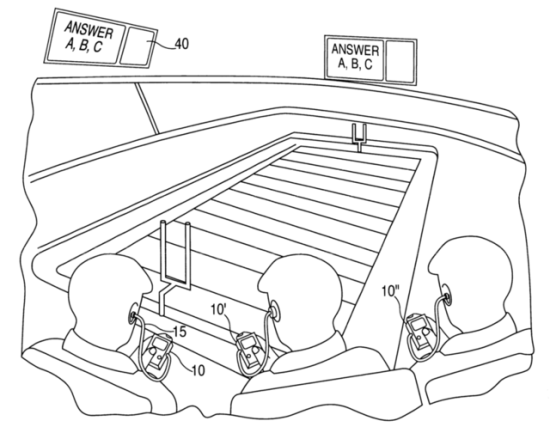Troll Claims To Hold Patent On Tweet Seats, Tweeting In Public by Extension
Recently the fad of “tweet seats“ — seats in theaters where patrons are allowed, even encouraged, to tweet — has been embraced more and more, even making its way to Broadway. If that sounds like a stupid idea to you, you might be pleased to hear there is a roadblock to further adoption. You shouldn’t be happy to hear that it involves patent trolling, however. Patent trolling of the most frivolous variety.
The troll in question, Inselberg Interactive, says that it’s laid claim to the tweet seat idea in a wad of patents that all deal with “method[s] and apparatus for interactive audience participation at a live spectator event.” Now tweet seats aren’t an invention; they aren’t even a particularly novel idea. It seems very questionable as to whether or not this could be proven to be “non-obvious,” but Inselberg seems ready to try and has accordingly filed suit against the tweet seat using Goodspeed Musicals in East Haddam, Connecticut. The language from the patent in question, according to Ars Technica, goes a little something like this:
A method for providing interactive audience participation at live spectator events. The method includes providing each spectator with an interactive device that presents a promotional message and includes a user interface, broadcasting audio programming to the spectator through the interactive device, querying the spectators, wherein answers to the querying may be entered by spectators via the user interface of the interactive device, transmitting the answers to a central processor, storing the answers as spectator data, processing the spectator data into results, storing the results of the processing of the spectator data and broadcasting the results of the processing of the spectator data.
There seem to be two major problems with this language. First of all, it hardly seems to have anything to do with tweet seats. Sure, the patent covers collecting spectator data, but in a very distinct way. The method involved seems to, by its very nature, include proprietary or specialized devices, a display for spectators, data processing (presumably turning raw numbers into statistics or something), and the act of feeding it all that to spectators in real time. Tweet seats involve none of those things.
The second issue is that this is an instance of where patents can come right up on the edge of patenting the very obvious. Granted, there are a few slightly novel things in here, but the lion’s share of what the patent covers is essentially “polling” — a concept that’s been around for a while.
It’s worth noting that nowhere in the patents does Inselberg seem to say or suggest that it invented smartphones, or Twitter. It’s just trying to argue that smartphones and Twitter fit snugly into the roles the patent defines as an “interactive device” and a “user interface” or maybe a “central processor.” Still, a victory in this case would essentially back up the idea that someone can basically patent “tweeting in public” or at least “the endorsement of tweeting in public” which is patently ridiculous.
Hopefully this case will result in an all-too-rare patent-troll-smackdown because, love or hate the concept, I think we can all agree that tweet seats shouldn’t be a patentable idea. Next thing you know, someone will come out of the woodwork claiming to have a patent on raising hands in class, or for a method for engaging in a bi-directional form of face-to-face verbal interaction wherein one party poses questions, rhetorical or otherwise, in a verbal or non-verbal fashion, with or without the accompaniment of facial expression including all facial features including, but not limited to: Eyebrows, mouth, eye lids, eyes, ears, cheeks, dimples, and nose, and a second party responds to said query in a similar verbal or non-verbal fashion. I mean come on.
(Ars Technica via Uproxx)
- Patent trolls target micro-transactions in gaming
- and emoticon buttons
- and are generally stifling innovation on the whole
Have a tip we should know? [email protected]
